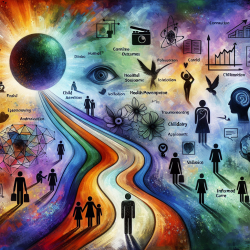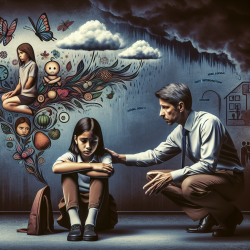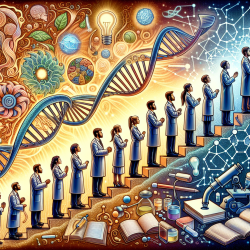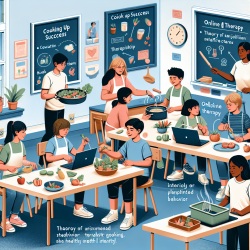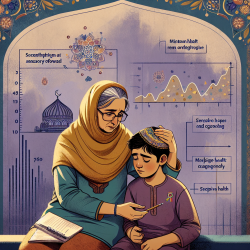Introduction
In the realm of intimate partner violence (IPV), the journey to healing and seeking help is fraught with challenges, especially for women experiencing suicidality. The research article "Hunting to Feel Human, the Process of Women’s Help-Seeking for Suicidality After Intimate Partner Violence: A Feminist Grounded Theory and Photovoice Study" provides valuable insights into this complex process. By understanding the nuanced ways women seek validation and support, practitioners can enhance their skills and improve outcomes for those in need.
Understanding the Process: Hunting to Feel Human
The study highlights a fundamental psychosocial process termed "Hunting to Feel Human," where women strive to regain a sense of belonging and personal value. This journey involves overcoming "System Entrapment," a feeling of dehumanization, by "Gauging for Validation" and "Taking the Path of Least Entrapment." These strategies are crucial for practitioners to understand, as they inform how women navigate their help-seeking experiences.
Implications for Practitioners
For health care providers, adopting a relational approach that prioritizes validating interactions is essential. This involves:
- Recognizing the impact of trauma and violence on women's health and providing culturally safe services.
- Offering unconditional positive regard, as advocated by Carl Rogers, to reinforce self-worth and equalize power dynamics.
- Understanding the broader social factors that influence women's help-seeking behaviors and addressing systemic barriers to care.
Encouraging Further Research
The study underscores the need for more research into the intersection of suicidality and IPV. Practitioners are encouraged to explore these areas further to develop more responsive services that meet the unique needs of women experiencing these challenges. By doing so, they can contribute to a body of knowledge that informs policy changes and improves service delivery.
Conclusion
By integrating the findings from this study into practice, health care providers can better support women on their journey to healing. Emphasizing validation and understanding the complexities of help-seeking can lead to more compassionate and effective care. For those interested in delving deeper into this research, the original paper can be accessed here.
